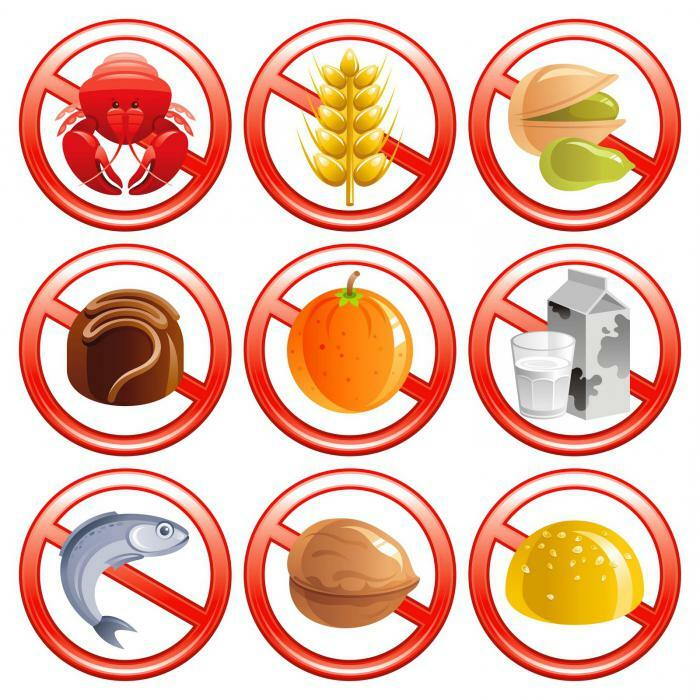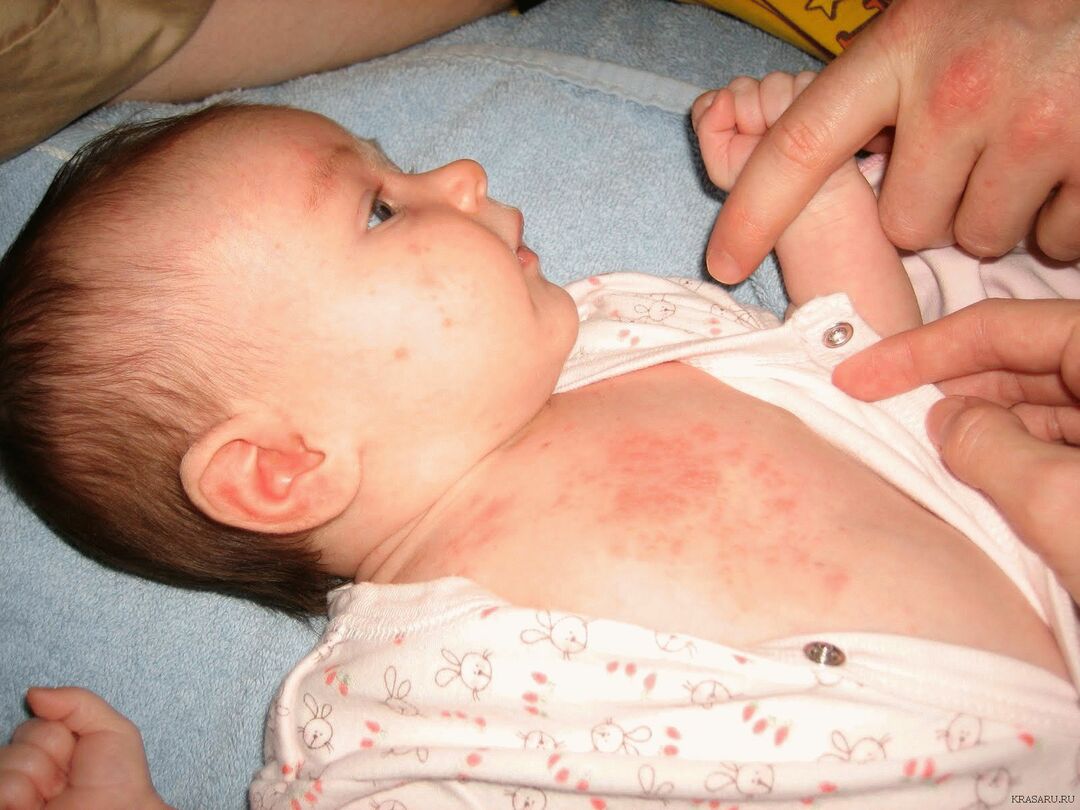Hypoallergenic Nursing Nursing Diet

Nutrition of the nursing mother should be full and balanced, so that the baby receives with breast milk all necessary for normal growth and development of the substance.As a rule, a woman can return to her usual diet in the first months after the birth of the child.Of course, it needs to adhere to a number of general rules and recommendations.
Table of contents: Indications for a hypoallergenic diet for nursing mothers. Is the transition to breastfeeding justified?Why is it important to get advice from an allergist and pediatrician?Kinds of diets for nursing mothersIndications for a hypoallergenic diet for nursing mothers
Recommended:Important: during lactation categorically prohibits the use of drinks containing alcohol, since ethyl alcohol and its decay products are able to penetrate into the breastMilk and cause serious harm to the health of the child.
Many children have a predisposition to allergies, that is, an inadequate response to an insufficiently formed immune system for some substances.In such cases, a hypoallergenic diet is recommended for lactating mothers.A special menu should include a minimum number of products that can trigger the development of a hypersensitivity reaction.

It is necessary to adjust the diet in the following cases:
- if the baby has allergy symptoms;
- the child has diseases of the gastrointestinal tract.
Symptoms of an allergic reaction may vary in severity.The baby can diathesis or the appearance of an almost imperceptible roughness of the skin.In more severe cases, atopic dermatitis may develop( skin diseases with signs of inflammation).Children with a burdened allergological anamnesis, that is, those whose parents suffer from various forms of allergy( pollen, wool, etc.) or diseases with an allergic component( bronchial asthma) need special attention.
From congenital abnormalities of the gastrointestinal tract, congenital anomalies of development can be distinguished, as well as genetically caused disturbances in the process of digesting food and absorbing nutrients.Disturbances in the digestive process lead to incomplete splitting of nutrient components that enter the body.As a consequence, the development of the so-called.Pseudoallergies - intolerance to certain food ingredients.In such cases, a non-specific hypoallergenic diet is indicated, requiring the exclusion of products that include common allergens, as well as histamine-ligating agents( compounds that promote active biosynthesis and release from the mast cells of the underlying mediator of allergy).
 The following products should be completely excluded from the ration during breastfeeding:
The following products should be completely excluded from the ration during breastfeeding:
- chocolate;
- fresh and frozen strawberries;
- any citrus;
- natural honey;
- smoked meat.
If one or both parents are allergic, the diet of nursing mothers in the first month and a half should be particularly strict.In the absence of skin manifestations of hypersensitivity, the diet can be gradually expanded, carefully following the condition of the baby.
Is the transition to breastfeeding justified?

The diet of nursing mothers, in order to avoid allergies in the baby, should be quite strict, so many women who are already tired of the restrictions during pregnancy, start thinking about transferring the baby to breastfeeding with artificial milk formulas.Is this approach justified?The opinion of doctors is unequivocal - no!
 Indeed, the transition to artificial feeding in a number of situations( but by no means in 100% of cases) gives a positive effect and allergies in the child are not observed during the first six months of life.But when the child reaches the age of six months, even if he is fed with expensive and practically flawless milk formulas, supplementary sources of the components necessary for the formation of the body are needed.With the introduction of new products into his diet, problems begin.Children who "did not get acquainted" with some substances, receiving them in small quantities with mother's milk, are particularly vigorous in responding to new types of products.As a consequence, the introduction of new components into the diet is constantly postponed and the baby loses a number of valuable components, which negatively affects its growth and development.
Indeed, the transition to artificial feeding in a number of situations( but by no means in 100% of cases) gives a positive effect and allergies in the child are not observed during the first six months of life.But when the child reaches the age of six months, even if he is fed with expensive and practically flawless milk formulas, supplementary sources of the components necessary for the formation of the body are needed.With the introduction of new products into his diet, problems begin.Children who "did not get acquainted" with some substances, receiving them in small quantities with mother's milk, are particularly vigorous in responding to new types of products.As a consequence, the introduction of new components into the diet is constantly postponed and the baby loses a number of valuable components, which negatively affects its growth and development.
Mothers who are not indifferent to the health of the baby are encouraged to continue breastfeeding, allowing the child to gradually adapt to various nutritional components and allergens.Mother's milk is the optimal food for the baby of the first months of life.Its composition is so unique that no mixture can be a full substitute.It should be borne in mind that, in addition to proteins, fats, carbohydrates, vitamins and trace elements, the baby receives enzymes with the mother's milk for the full functioning of the digestive tract and immunoglobulins to protect the body.
 The hypoallergenic diet of nursing mothers enables:
The hypoallergenic diet of nursing mothers enables:
- to continue breastfeeding for as long as necessary;
- to minimize the amount of allergens entering the child's body;
- to reveal, on what components the immunity of the baby reacts inadequately;
- to prevent the progression of allergies and to exclude its possible complications.
Why is it important to get advice from an allergist and pediatrician?
 Diet for a nursing mother in the first months may seem excessively strict, but in the long term the list of products can be expanded.Before deciding which foods can be included in the diet, it is advisable to consult a district pediatrician and( preferably) an allergist beforehand.
Diet for a nursing mother in the first months may seem excessively strict, but in the long term the list of products can be expanded.Before deciding which foods can be included in the diet, it is advisable to consult a district pediatrician and( preferably) an allergist beforehand.
A thorough collection of family history is of great importance for the doctor;Having found out, what kinds of an allergy suffer the nearest relatives of the child, the expert can make the list of undesirable products.Examination of the child will allow the pediatrician to establish whether there are characteristic( even minor) rashes on the skin, and whether the cause of their occurrence is food allergy.Hyperemia( reddening) and a rash does not always indicate a hypersensitivity reaction to components present in milk.
Note: reddening of the skin, which some are mistaken for allergies, often turn out to be the most common dishwasher, which can be cured with the usual baby powder.
 Allergy to disposable hygiene products( napkins and diapers), soap, shampoos and children's laundry detergent is quite common, despite the fact that all products of these categories are declared by the manufacturers as hypoallergenic.In such cases, the observance by the mother of any restrictive diet loses all meaning.
Allergy to disposable hygiene products( napkins and diapers), soap, shampoos and children's laundry detergent is quite common, despite the fact that all products of these categories are declared by the manufacturers as hypoallergenic.In such cases, the observance by the mother of any restrictive diet loses all meaning.
To find the optimal diet for nursing mothers by months, a doctor may need additional data, which can be obtained during additional studies.In some cases, a laboratory blood test is required to identify a possible allergen.
Important: before you start to follow a hypoallergenic diet, the baby should be treated strictly adhering to the recommended pediatrician regimen.Without the use of pharmacological drugs, rashes on the skin can persist long enough - up to 2-3 weeks or more.Only by coping with pathological changes, it is possible to later determine which new product in your diet the child's organism reacts to.
Kinds of diets for nursing mothers

There are two main types of hypoallergenic diets:
- specific;
- are nonspecific.
Nonspecific diets
Nonspecific variant implies exclusion of histamine-liberators and highly-allergenic products from the diet.Such diets are recommended to women if their babies develop an easy form of diathesis or simply have a predisposition to allergies.
List of products-histaminolibrators:
- mushrooms;
- caviar of sturgeons and salmonids;
- a number of berries( strawberries, raspberries, etc.);
- seafood;
- whole cow milk;
- nuts;
- sunflower seeds;
- any spices;
- Citrus;
- pickled vegetables;
- products, which contain preservatives and artificial flavors and colorants.
List of products whose consumption is recommended to be limited:
- meat broths( especially - strong);
- red and orange vegetables and fruits;
- beef;
- poultry meat;
- bakery products from wheat flour.
Low allergenic products, the consumption of which is allowed and even recommended:
- fermented milk products( except yogurt with dyes and flavorings);
- rice;
- pearl barley;
- buckwheat groats;
- oatmeal;
- cabbage( any);
- zucchini;
- any fruit of green color;
- apples and pears( all grades);
- butter;
- vegetable oils;
- low-fat pork;
- rabbit meat;
- some hypoallergenic species of marine fish( cod, pikeperch).
A specific hypoallergenic diet for nursing mothers is indicated if the baby has severe or moderate allergy.It involves the exclusion from the diet of not only histamine-liberators, but, in addition, and specific products, which presumably the child has an allergy.
Important: The hypersensitivity reaction is characterized by strict individuality.Allergy can arise even for the most "harmless" product.
In order to "track" a specific allergen, the mother of the baby is recommended to keep a special diary.In it you need to record with the greatest accuracy information about what products she used for food.In the next column there are possible changes in the skin condition of the baby or the absence of such.
A diet that prevents intestinal colic in a baby
 A very common problem in babies is intestinal colic.It is especially relevant in the first 3 months of the child's life.The state of the digestive tract of a nursing infant largely depends on what his mother is eating.
A very common problem in babies is intestinal colic.It is especially relevant in the first 3 months of the child's life.The state of the digestive tract of a nursing infant largely depends on what his mother is eating.
The diet of nursing mothers( so that there is no colic in the baby) requires the complete elimination of products that can provoke increased gas production.Gases contribute to bloating and the appearance of pain, and to get rid of them on their own until they allow the immature muscles of the abdominal region.
List of products from which mums should be discarded:
- green( unripe) apples;
- bread made from rye flour;
- any leguminous crops;
- sauerkraut;
- some sour-milk products( in particular - kefir);
- nuts and seeds.
In order to reduce gassing in the intestines of the baby, and to improve the migration of gases, it is advisable for the mother to include in her diet the following products:
- mashed potatoes;
- bananas;
- dried apricots( dried apricots):
- prunes.
Please note: any dried fruit should be consumed in moderate quantities!
A nursing diet should be observed, that is, a sufficient amount of liquid should be present in the daytime ration.It is recommended to drink a day at least 1 liter of milk and 3-4 cups of tea( preferably - green).

You should temporarily exclude pickled, pickled and roasted products from the menu.
For more information about the ration of a nursing mother, see this video review:
Chumachenko Olga, pediatrician



